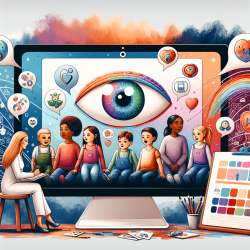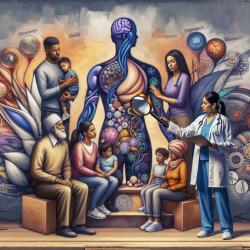Introduction
The research article titled "UHC2030’s Contributions to Global Health Governance that Advance the Right to Health Care" provides a comprehensive assessment of how UHC2030 contributes to global health governance and the right to health care. For practitioners in the field of online therapy services, such as those at TinyEYE, the insights from this research can be instrumental in enhancing service delivery and aligning with global health governance standards.
Understanding UHC2030's Role
UHC2030 is a multi-stakeholder partnership that focuses on coordinating and amplifying efforts by WHO, the World Bank, civil society, and the private sector to strengthen health systems and achieve Universal Health Coverage (UHC). The organization plays a pivotal role in advancing the right to health care by aligning efforts with health rights and ensuring that no one is left behind.
Key Takeaways for Practitioners
For online therapy practitioners, understanding the principles and contributions of UHC2030 can help improve service delivery and compliance with global standards. Here are some key takeaways:
- Commitment to Equity and Non-Discrimination: Ensure that online therapy services are accessible to all students, regardless of their background or location. This aligns with UHC2030's commitment to leave no one behind.
- Participatory Decision-Making: Engage with stakeholders, including parents and educators, in the decision-making process to ensure that therapy services meet the diverse needs of students.
- Transparency and Accountability: Maintain transparent communication with all stakeholders and ensure accountability in service delivery to build trust and credibility.
- Focus on Vulnerable Groups: Prioritize services for students with special needs or those in underserved areas to ensure equitable access to therapy.
Encouraging Further Research
While the research provides a preliminary assessment of UHC2030's contributions, practitioners are encouraged to delve deeper into the principles of global health governance and the right to health care. This can be achieved by attending conferences, engaging in webinars, and networking with other professionals in the field.
Conclusion
By implementing the outcomes of the research presented in "UHC2030’s Contributions to Global Health Governance that Advance the Right to Health Care," online therapy practitioners can enhance their skills and service delivery. Embracing these principles not only aligns with global health standards but also ensures that all students receive the care they deserve.
To read the original research paper, please follow this link: UHC2030’s Contributions to Global Health Governance that Advance the Right to Health Care.










